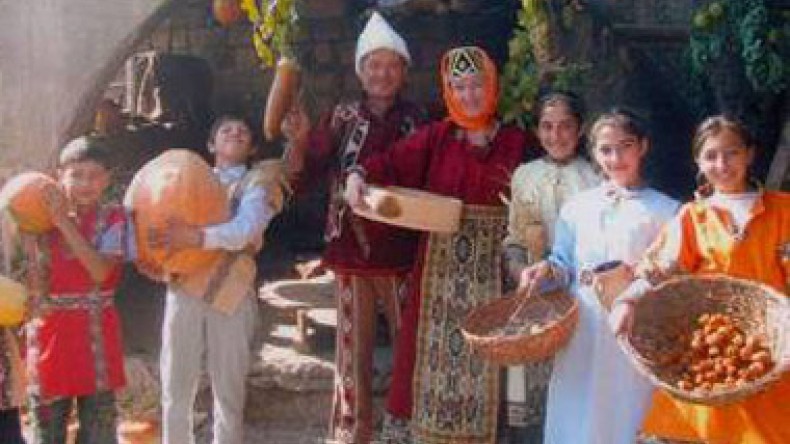
August 11 marks Navasard, ancient Armenian New Year
In pagan Armenia the New Year was celebrated on August 11. The feast was called Navasard.
Ancient sources bear out that Navasard-New Year was adorned with solemn and splendid festivities, which lasted several days. There were carnivals, cavalcades, various games with participation of the king, noblemen and plain folk. Various open-air celebrations were often held at night around the fire at holy shrines.
Many legends have been told about this most beloved feast; it is said that on this very day our forefather Hayk had a stunning victory over his enemy Bel and gave start to the history of Armenians. It was also believed that this day Noah’s Arc landed on the peak of Mount Ararat, and so the yearly celebrations of Navasard-New Year were to reconfirm the beginning of the new era of humanity.
After the adoption of Christianity in Armenia this feast, along with many others, was officially reformed. The pagan temples were destroyed, the known celebrations and pilgrimages were forbidden. Navasard found its place neither in the church nor in civic calendar, but the people didn’t forget their tradition and they kept celebrating it for many centuries.
Newsfeed
Videos






























